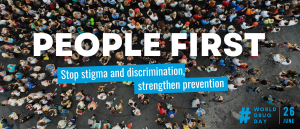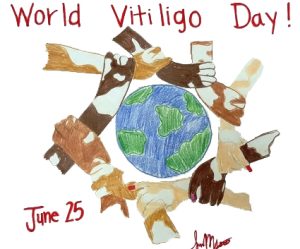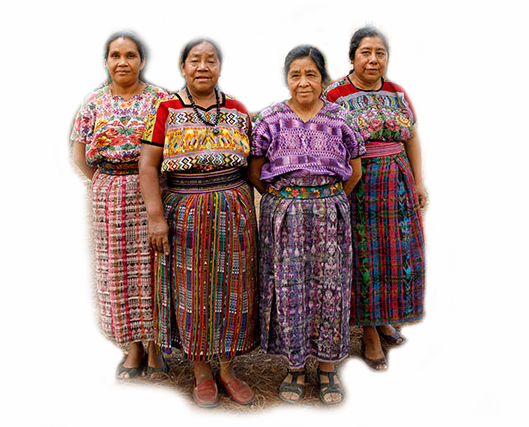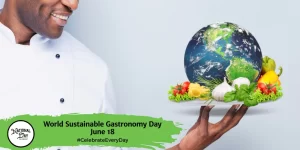 Every year on June 27th, Micro-, Small and Medium-Sized Enterprises Day raises awareness for e important role different sized enterprises play in meeting the United Nation’s Sustainable Development Goals.
Every year on June 27th, Micro-, Small and Medium-Sized Enterprises Day raises awareness for e important role different sized enterprises play in meeting the United Nation’s Sustainable Development Goals.
#MicroSmallMediumSizedEnterprisesDay
There are two classes of micro-, small and medium-sized enterprises. These classes include manufacturing enterprises and service enterprises. Businesses are further broken down according to how much money they invest in their manufacturing plant, machinery, and equipment. According to recent estimates, more than 95% of global enterprises are micro-, small and medium-sized. These companies account for 60% of private-sector employment. Additionally, these enterprises make up 50% of GDP.
In 2015, the UN General Assembly developed 17 global goals that they called Sustainable Development Goals. The purpose of the goals is to achieve a better and more sustainable future for all. The UN also hopes to achieve these goals by 2030.
Some of these sustainable goals include:
- No poverty
- Good health and well-being
- Quality education
- Gender equality
- Clean water and sanitation
- Decent work and economic growth
- Industry, innovation and infrastructure
- Sustainable cities and communities
- Responsible consumption and production
The UN believes micro-, small and medium-sized enterprises help to sustain growth for long-term development in developing countries. As this growth becomes stronger, enterprises of all sizes will begin to play a key role in industrial development. Micro-, small and medium-sized enterprises will do this by increasing local demand for services. These types of enterprises will also be responsible for significant employment opportunities and income generation.
MICRO, SMALL AND MEDIUM-SIZED ENTERPRISES DAY HISTORY
On April 6, 2017, the UN General Assembly adopted a resolution to designate June 27th as Micro-, Small and Medium-sized Enterprises Day. The resolution was co-sponsored by 54 member states, representing over 5 billion people. The UN has appointed the International Trade Centre as the leading agency for this observance.





 Invisible Women, Invisible Problems
Invisible Women, Invisible Problems

 World Rainforest Day is observed on June 22 every year across the world. This day is set aside to raise awareness about rainforests and also about all the biotic species that live in them. World Rainforest Day aims to encourage people to learn more about rainforests and join efforts to protect and preserve these forests for generations to come. Rainforests have been disappearing and taking the rich diversity of flora and fauna with them because of increasing deforestation and climate change. World Rainforest Day was instituted to halt this disappearance by reminding people of the importance of rainforests.
World Rainforest Day is observed on June 22 every year across the world. This day is set aside to raise awareness about rainforests and also about all the biotic species that live in them. World Rainforest Day aims to encourage people to learn more about rainforests and join efforts to protect and preserve these forests for generations to come. Rainforests have been disappearing and taking the rich diversity of flora and fauna with them because of increasing deforestation and climate change. World Rainforest Day was instituted to halt this disappearance by reminding people of the importance of rainforests. On June 21, for National Indigenous Peoples Day, we recognize and celebrate the history, heritage, resilience and diversity of First Nations, Inuit and Métis across Canada.
On June 21, for National Indigenous Peoples Day, we recognize and celebrate the history, heritage, resilience and diversity of First Nations, Inuit and Métis across Canada.
 2023 Theme: Hope Away from Home
2023 Theme: Hope Away from Home Word Sustainable Gastronomy Day on June 18 recognizes the practices and principals associated with sustainable food consumption combined with the art of collecting, preparing, and consuming the food we eat. As part of the observance, the day acknowledges the social, cultural, and artistic expression related to gastronomy and defines three dimensions of sustainable development – people, planet, and profit.
Word Sustainable Gastronomy Day on June 18 recognizes the practices and principals associated with sustainable food consumption combined with the art of collecting, preparing, and consuming the food we eat. As part of the observance, the day acknowledges the social, cultural, and artistic expression related to gastronomy and defines three dimensions of sustainable development – people, planet, and profit.